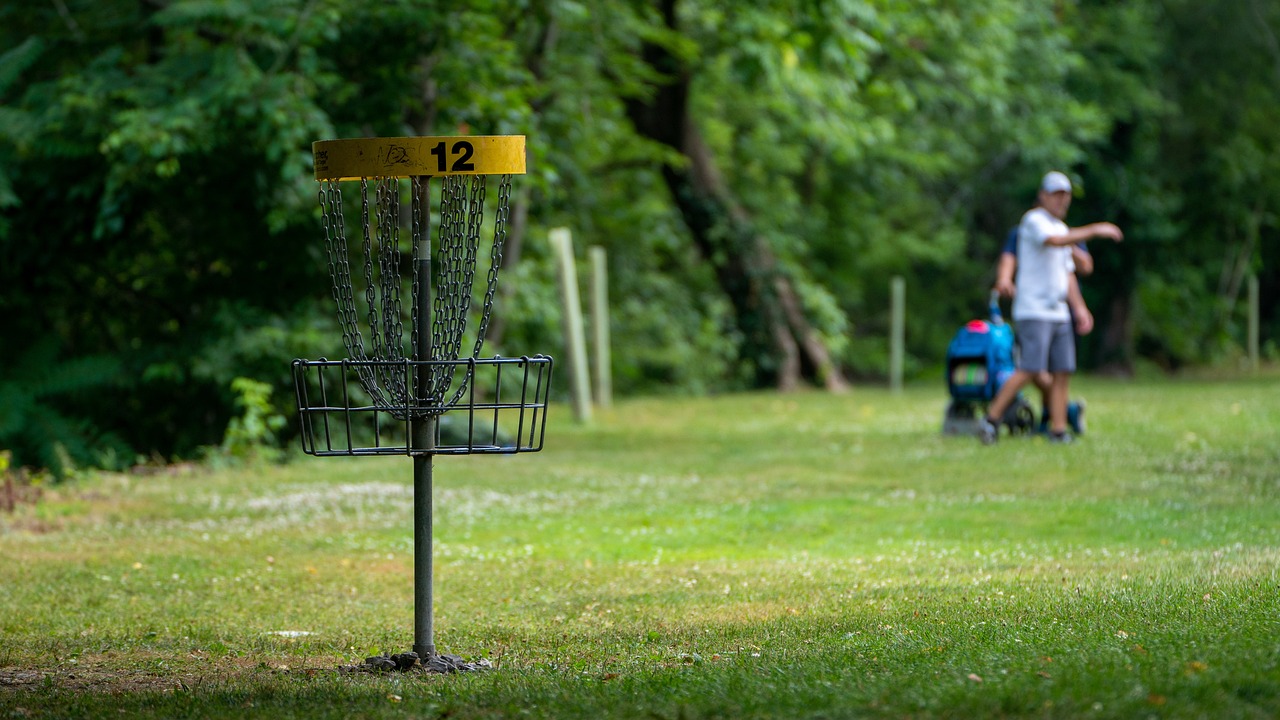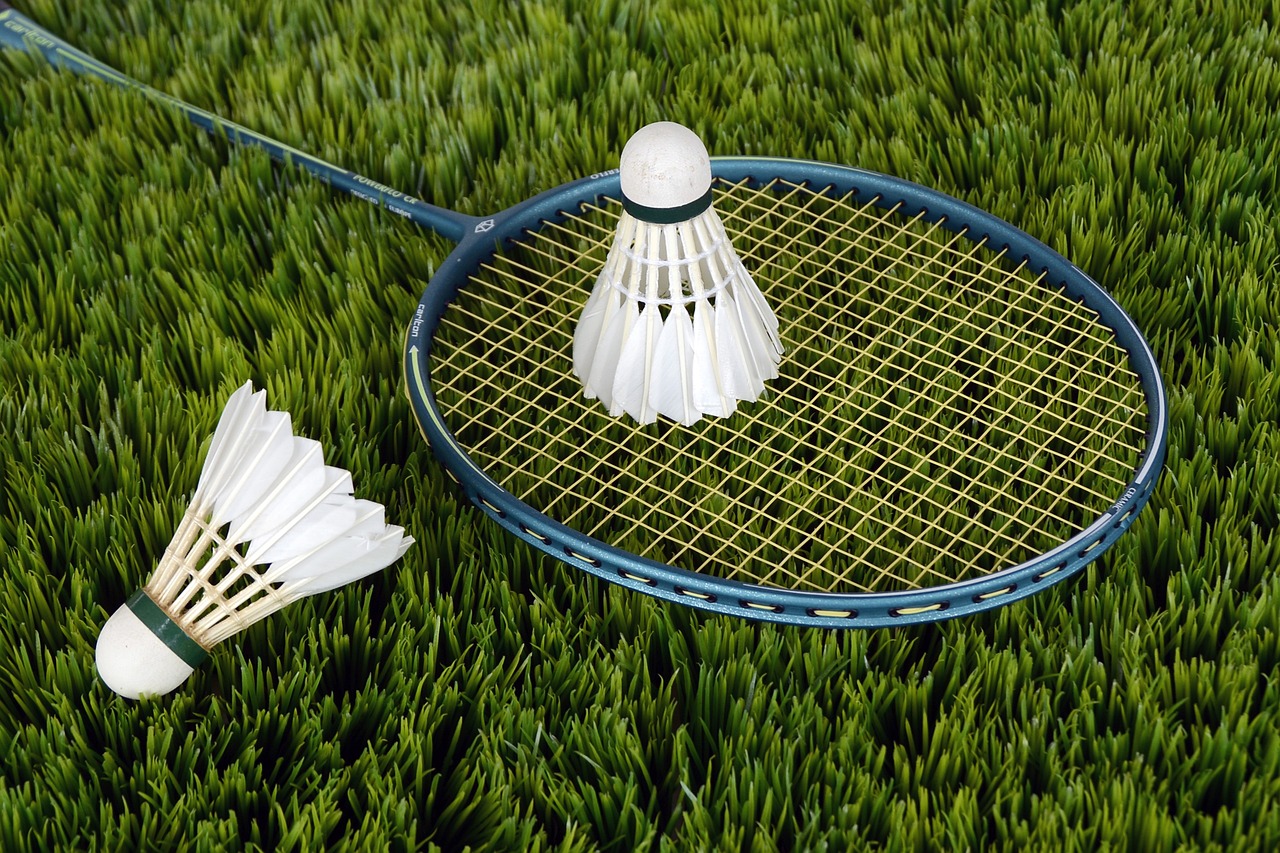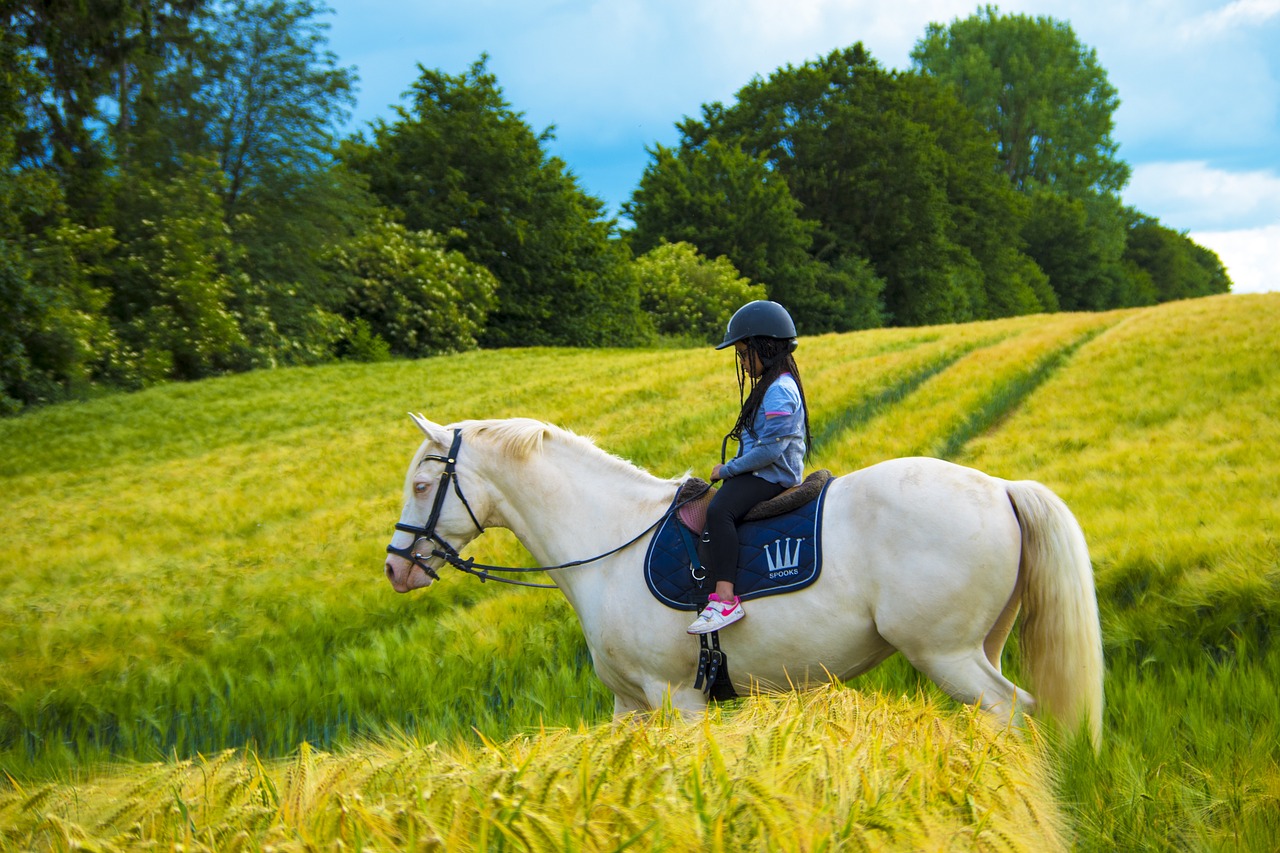Frisbee and Disc Golf: The Ultimate Guide to Fun, Fitness, and Friendly Competition
In recent years, disc sports like Frisbee and Disc Golf have soared in popularity, captivating enthusiasts of all ages across America. Whether you’re tossing a Frisbee at the park or mastering your putt on a disc golf course, these activities offer a unique blend of fun, fitness, and friendly competition. In this comprehensive guide, we’ll explore the history, rules, equipment, and benefits of both Frisbee and Disc Golf, and share tips on how to get started in these engaging sports.
Aba Guresi: Exploring the Rich Tradition of Turkish Folk Wrestling
The Evolution of Disc Sports: From Frisbee to Disc Golf
A Brief History
- Frisbee:
The modern Frisbee traces its roots to the 1940s, evolving from pie tins that were tossed around by college students. Over the decades, Frisbee became a staple of outdoor fun, eventually giving rise to various competitive sports like Ultimate Frisbee and Freestyle Frisbee. - Disc Golf:
Disc Golf, also known as Disc Golf or Disc Golfing, emerged in the 1960s as a natural extension of the classic Frisbee toss. Modeled after traditional golf, players use specialized discs to navigate a course with designated targets, typically metal baskets. Today, Disc Golf is recognized as a legitimate sport with professional tournaments and a rapidly growing community.
Abseiling: A thrilling adventure sport for fitness and fun
What Is Frisbee?
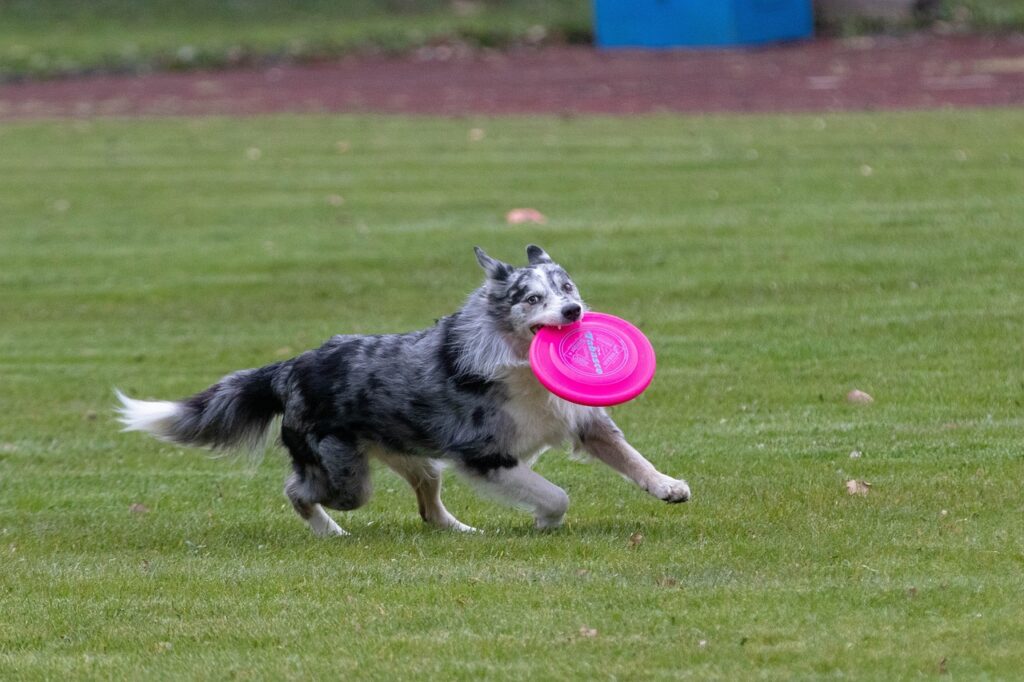
The Classic Disc Game
Frisbee is synonymous with outdoor play. Whether you’re engaging in a casual toss with friends or competing in an organized game like Ultimate Frisbee, the Frisbee is a versatile tool for fun and fitness.
Volleyball and Basketball: Discover Their Health Benefits and Fitness Impact
Popular Frisbee Variants:
- Ultimate Frisbee:
A fast-paced team sport that combines elements of soccer and football, where players aim to catch the Frisbee in the opposing team’s end zone. - Frisbee Golf (Disc Golf):
While often used interchangeably with Disc Golf, the term “Frisbee Golf” is sometimes used colloquially to refer to recreational disc throwing into targets. - Freestyle Frisbee:
A creative form where individuals perform tricks, tosses, and catches in a choreographed routine.
Equipment Needed
- Frisbee/Disc:
Standard Frisbees are designed for casual play, while specialized discs are used for competitive games like Ultimate Frisbee and Disc Golf. - Playing Field:
Open spaces like parks, beaches, or specially designed fields provide the ideal setting for a game of Frisbee.
Cricket and Football: Boost Your Health with These Popular Sports
What Is Disc Golf?
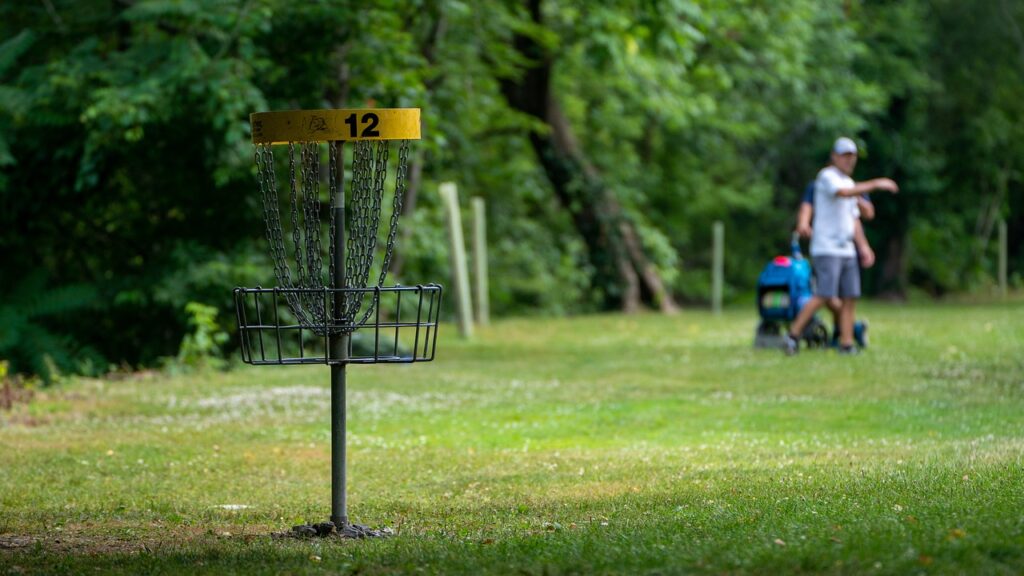
A Modern Twist on a Classic Game
Disc Golf is a sport where players aim to complete a course in as few throws as possible by tossing a disc into a metal basket. Much like traditional golf, Disc Golf requires precision, strategy, and a good understanding of the course layout.
Learn all the details about Martial Arts
Rules of Disc Golf:
- Tee-Off:
Players start at a designated tee area and throw their disc toward the target basket. - Subsequent Throws:
Each throw is taken from the spot where the previous throw landed. - Scoring:
The goal is to complete each hole with the fewest number of throws. - Course Layout:
Courses often feature 9 or 18 holes, each with varying obstacles and challenges.
Equipment Needed
- Disc Golf Discs:
There are three main types: drivers for long-distance throws, mid-range discs for accurate shots, and putters for finishing close to the target. - Basket:
The target is typically a metal basket with chains designed to catch the disc. - Scorecard:
Keeping track of your throws is essential, just like in traditional golf.
Why is table tennis good for you?
The Benefits of Playing Disc Sports
Physical Benefits
- Improved Cardiovascular Health:
Running, walking, and quick movements during Frisbee and Disc Golf help elevate your heart rate, improving cardiovascular endurance. - Enhanced Muscle Strength and Flexibility:
The dynamic movements involved in throwing and catching a disc work out your arms, shoulders, core, and legs. - Calorie Burning:
Both sports offer an excellent way to burn calories while having fun outdoors.
Mental Benefits
- Stress Relief:
Outdoor activities in natural settings help reduce stress and promote mental well-being. - Improved Focus and Coordination:
Tracking a moving disc and planning your next throw can enhance hand-eye coordination and concentration. - Social Interaction:
These sports foster community and teamwork, providing a platform for socializing and building relationships.
Environmental and Social Benefits
- Accessible and Affordable:
Disc sports require minimal equipment and can be played in many public parks and recreational areas. - Community Building:
Join local leagues, clubs, or casual gatherings to meet like-minded individuals and make new friends. - Outdoor Enjoyment:
These activities encourage spending time outdoors, contributing to a healthier lifestyle and a greater appreciation for nature.
Hiking and Trekking: What’s the difference?
Tips for Beginners
Getting Started with Frisbee
- Find a Local Park:
Look for open spaces where you can practice tossing and catching the Frisbee. - Join a Game:
Many communities have casual pickup games or leagues, particularly for Ultimate Frisbee. - Practice Your Throw:
Experiment with different throwing techniques—like the forehand and backhand—to find what works best for you.
Getting Started with Disc Golf
- Locate a Disc Golf Course:
Many parks now feature Disc Golf courses, or you can find one through online directories. - Invest in a Starter Set:
Purchase a beginner set that includes a driver, mid-range disc, and putter. - Learn the Rules:
Familiarize yourself with the basic rules and etiquette of the game. - Practice Your Aim:
Spend time on the practice field or at the tee area to develop your throwing accuracy and distance control.
Which is better for you, tennis or badminton?
Advanced Techniques and Strategies
For Frisbee
- Master the Spin:
A well-spun Frisbee flies farther and more accurately. Practice generating spin with your wrist. - Strategic Positioning:
In team games like Ultimate Frisbee, learn to read the field and position yourself for optimal passing lanes. - Defensive Play:
Improving your ability to intercept passes can be as crucial as offensive skills in competitive games.
For Disc Golf
- Course Management:
Study the course layout and plan your shots strategically to avoid obstacles. - Disc Selection:
Learn which type of disc to use for different holes based on distance and wind conditions. - Consistent Practice:
Regular practice improves your throw’s consistency and helps develop muscle memory for successful shots.
What is horseback riding? A Complete Guide.
Conclusion
Frisbee and Disc Golf offer a fantastic blend of exercise, fun, and social interaction that appeals to people of all ages. These disc sports not only improve physical health and mental well-being but also create opportunities for community building and outdoor enjoyment. Whether you’re looking for a casual way to stay active or aiming to compete in a league, these sports have something to offer.

